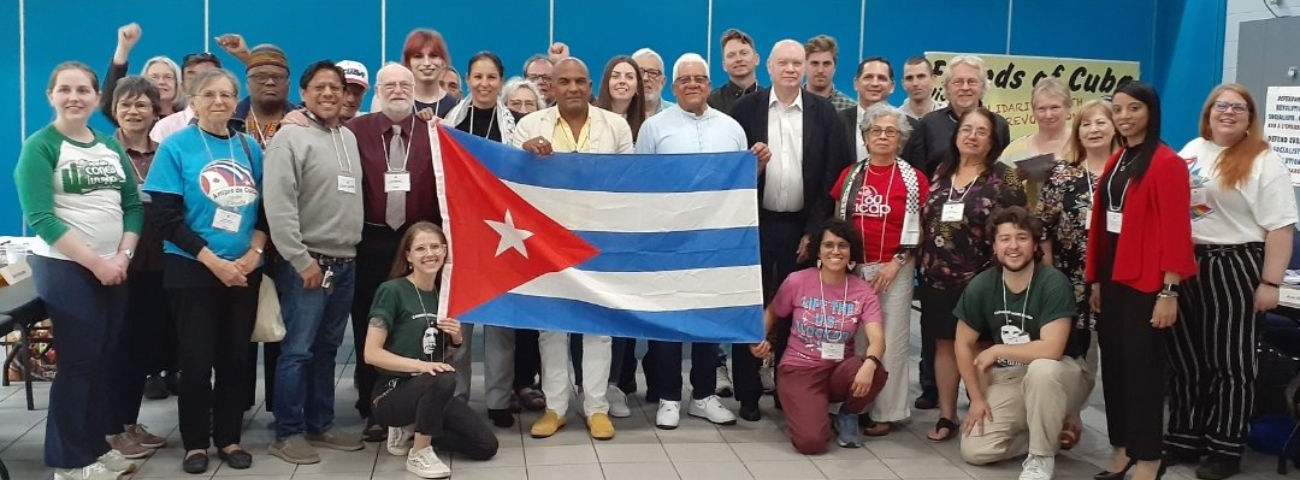By Kevin Fulmer
The far-right, anti-immigrant party Alternative for Germany (AfD) surged in the Bavaria’s state election in October, coming third with just under 2 million votes and gaining 10 seats in the state legislature. This follows a trend of electoral success for AfD, which is now polling at around 20 percent across all of Germany.
Interestingly, the far right enjoys large support in the formerly socialist east German states where until recently the working class largely supported the democratic socialist party Die Linke (“The Left”). In contrast to this electoral success of the AfD, Die Linke has slipped in the polls, and is now fracturing apart.
Following the annexation of the German Democratic Republic by the capitalist West German state and the imposition of capitalism on the formerly socialist section of Germany, many socialist parties in the east moved toward “democratic socialism,” a version of social democracy. These groups soon merged into Die Linke, Germany’s main left-wing electoralist party. While some factions of Die Linke have weakly defended the legacy of German socialism that existed in the GDR, it is firmly a party of class collaborationism, rejecting real class struggle as “authoritarian” and going no further than meekly asking for reforms. In practice, Die Linke often aligns with the liberal political establishment.
Die Linke has for years counted on the formerly socialist regions of Germany for most of its support, having little electoral success in the west. This support has come from workers whose lives were plunged into poverty by the imposition of capitalism – the five major states that made up the GDR are all well below the economic average of the German states. These workers are aware of the failures and false promises of liberal capitalism and for years saw in Die Linke a left-wing option.
After decades of loyalty to Die Linke however, the working class is no better off. The party has participated in coalitions with liberals including the centre-left Social Democratic Party (SPD) and is not willing to be a real threat to the economic establishment. This is a common feature of social democratic parties and movements around the world, including those that describe themselves as “democratic socialist.”
Partially in fear of being seen as communist, Die Linke and its party elite have forsaken socialism in favour of reformism and right-opportunism. This political approach rejects real class struggle and is therefore more palatable to the capitalist ruling class and media. The party has largely denounced the peace movement’s opposition to sending weapons to Ukraine, describing those organizations as “right-wing” along with the rest of the German political establishment.
This has all led to the steady decline of Die Linke’s electoral success in the five formerly socialist states in the east over the past few elections, in addition to the federal Bundestag election of 2021 where they lost almost half their seats.
As it becomes clearer that Die Linke is not a real threat to the political and economic establishment, many disillusioned working people in Germany – especially in the east – have turned to the far-right Alternative for Germany (AfD) which exploits discontent by offering easy solutions and targets, such as immigrants. This is similar to much of Donald Trump’s voter base in the US, which are being fooled by right-wing rhetoric that seems anti-establishment by targeting liberal democracy, but which really just doubles down on capitalism in its most reactionary form.
This political shift in the east, and throughout all Germany, has caused a major fracture within Die Linke. Following the recent electoral success of the AfD and Die Linke’s own decline, the party’s farther left faction – led by Sahra Wagenknecht – has decided to break away and create a new party which they say will focus more on what working people demand. In the statement declaring her faction’s departure, Wagenknecht said “The history of [Die Linke] since the European elections in 2019 is the history of political failure. The respective party leadership and the officials supporting them at the state level were determined not to discuss this failure critically under any circumstances. No responsibility was taken for this, nor were any substantive consequences drawn from it.”
Wagenknecht then brought up the threat posed by the AfD and Die Linke’s responsibility for allowing the far right to steal traditionally left-wing supporters, saying “…opposition to [economic upheaval and conflict escalation] is increasingly being sanctioned and pilloried in public discussion. But democracy needs diversity of opinions and open debates. The government’s inability to deal with the crises of our time and the narrowing of the accepted corridor of opinion have pushed the AfD to the top.”
Pointing out that the watered down left is not even viewed by workers as anti-establishment anymore, she noted that “many people simply no longer know how to express their protest any other way. In this situation, [Die Linke] no longer appears as a clearly recognizable opposition.”
The political shift in Germany is by no means a one-off – parties that champion neutered versions of socialism, like social democracy and “democratic socialist” variant, have seen no success in Canada or in the rest of the capitalist west. As capitalism decays and working people’s economic situations deteriorate, many turn towards any anti-establishment outlet that provides them with an explanation and a way out of their worsening conditions.
Since the social democratic parties of America and Europe seem more concerned with denouncing real socialism and being palatable to the ruling elite than they are with solving the problems of working people, they will see no real support or success in any meaningful way. This provides an opportunity for right-wing populism to pretend to address people’s concerns, and parties like the AfD in Germany or figures like Pierre Poilievre in Canada gain traction.
Progressive people all around the world need to see this and stop being afraid of taking a stand for real socialism out of fear of being labelled too radical by the mainstream press, politicians and other tools of the ruling class. Watering down our message will only hinder the working-class movement and provide fertile ground for right-wing populism.
Support socialist media!
If you found this article useful, please consider donating to People’s Voice or purchasing a subscription so that you get every issue of Canada’s leading socialist publication delivered to your door or inbox!
For over 100 years, we have been 100% reader-supported, with no corporate or government funding.




